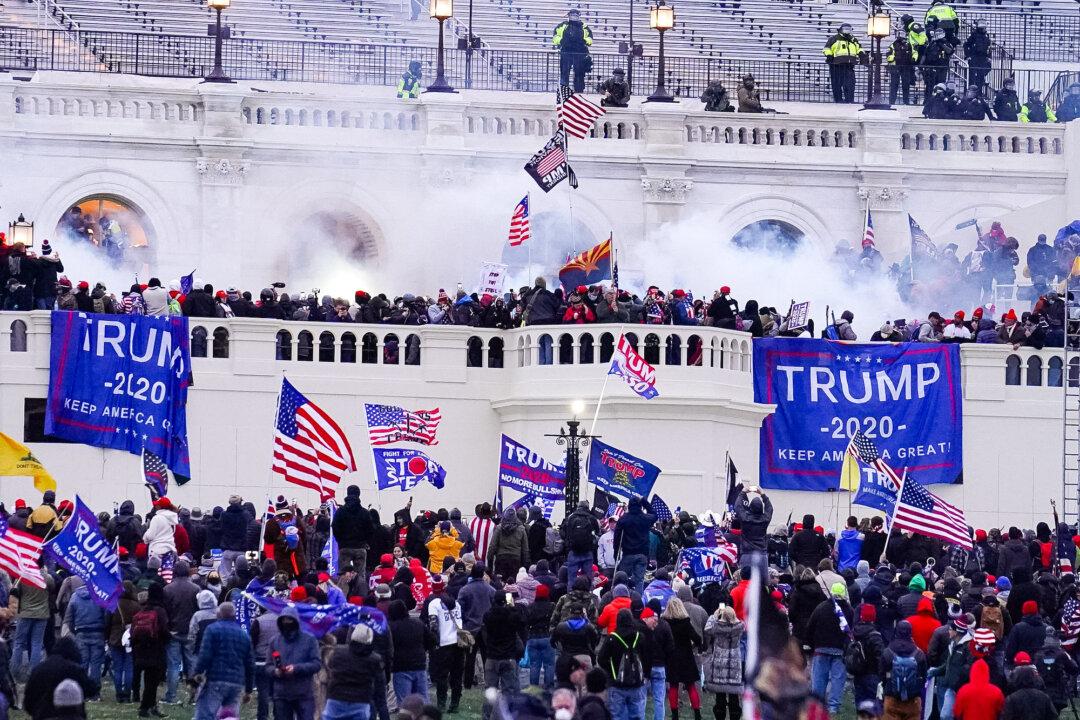A Washington state man was sentenced to over seven years in prison on Wednesday after a judge said he played a leadership role in the Jan. 6 Capitol breach and called for a “nuclear option” when then-Vice President Mike Pence failed to pause the electoral vote count.
“In any angry mob, there are leaders and there are followers. Mr. Johnatakis was a leader. He knew what he was doing that day,” U.S. District Judge Royce Lamberth said on April 3 in a District of Columbia courtroom, before sentencing Taylor James Johnatakis to seven years and three months behind bars.





